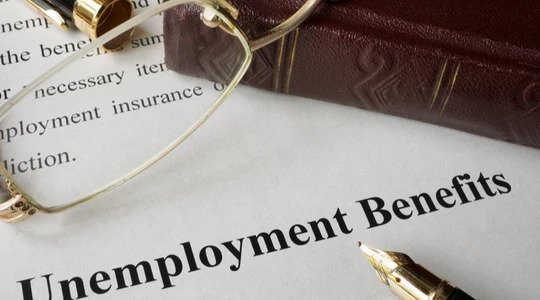
More than 20 million jobs were cut this year due to the COVID-19 crisis and the nation hit the highest level of unemployment since the Great Depression, skyrocketing to a rate of 14.7%. Millions of Americans have had to seek unemployment benefits for the first time to make ends meet, and many are questioning whether they need to pay taxes on those benefits.
Who is Eligible to Receive Unemployment Benefits?
A reported estimate of 4.7 million Californians filed for jobless benefits between March and May. The U.S. Labor Department allows people to file for unemployment benefits if they lose their job through no fault of their own. While each state has its own requirements for eligibility, California residents must have worked in the past 12 to 18 months and have earned at least a minimum wage to receive unemployment benefits. You must also be able and available to work each week that you’re claiming benefits.
Californians can receive unemployment benefits for up to 26 weeks in 12 months. Unfortunately, that means some residents who received benefits less than one year before the COVID-19 crisis began will not be eligible to apply.
Do I Need to Pay Taxes for Unemployment Benefits?
Yes, the IRS considers unemployment benefits to be taxable income. In the same way as regular earnings, Californians will be taxed at their ordinary income tax rate on unemployment compensation from the state and federal government. By January 2021, residents will receive a Form-1099-G from the state that details the amount of unemployment benefits that they received and the amount of taxes being withheld. When filing your 2020 tax return, you may have to pay additional state and federal taxes on these benefits, depending on how you received them.
How Do I Pay Taxes on Unemployment Benefits in California?
You can pay taxes on unemployment benefits through several methods. They include:
-
Have the tax automatically withheld before receiving benefits
-
Make estimated tax payments to the IRS
-
Pay your taxes when you file your 2020 tax return
Depending on your financial situation, you can choose the option that best fits your needs. The following explains how each of these payment options works for paying unemployment taxes in California.
Taxes Automatically Withheld
If the thought of your taxes adding up and paying them back later gives you anxiety, you can have your taxes withheld automatically the same as you would a paycheck. All you have to do is file a Form W-4V (Voluntary Withholding Request) to have your federal and state income taxes be withheld before you receive your payment each week.
When you file your taxes next spring, this option will reduce your tax bill by a significant amount. However, if you need a more substantial weekly payment upfront during the COVID-19 crisis, this would not be the best option as your weekly payments will be lower.
Estimated Tax Payments
You can pay income taxes on the unemployment benefits you receive quarterly by submitting a payment every three months to the IRS. That way, you can pay taxes as you receive them, so when you file your 2020 tax return, you will already be caught up on your unemployment taxes.
The only disadvantage of going this route is you’re responsible for totaling your benefits and estimating the amount of state and federal taxes you owe for your quarterly payments. You may pay a little more or a little less, but it will balance out when you file your tax return.
Pay Taxes Later
If you need to maximize your unemployment benefits to pay for living expenses, you can receive your benefits tax-free and pay them back later when you file your tax return. The advantage of this is you can set money aside for tax season each month to pay so you’re not facing a substantial tax bill come next spring, while still having a rainy day fund that you can use in case of an emergency.
The downside is you will owe a relatively large income tax bill when you file the following year. As long as you don’t spend all of your benefits, this can be a useful option during difficult times.
Experienced Tax Attorney Ready to Help in Orange, California
If you’re experiencing trouble paying back taxes or have received intimidating notices from the IRS or the state, contact experienced tax attorneys immediately for help. Morgan Sebastian Law, PC can help you resolve your state and federal tax issues so that you can move forward with peace of mind.
To schedule a consultation with a knowledgeable tax attorney, complete our contact form or call 877-938-1350.

